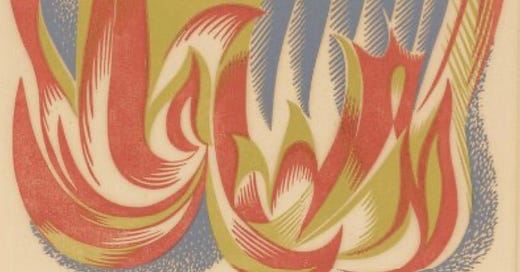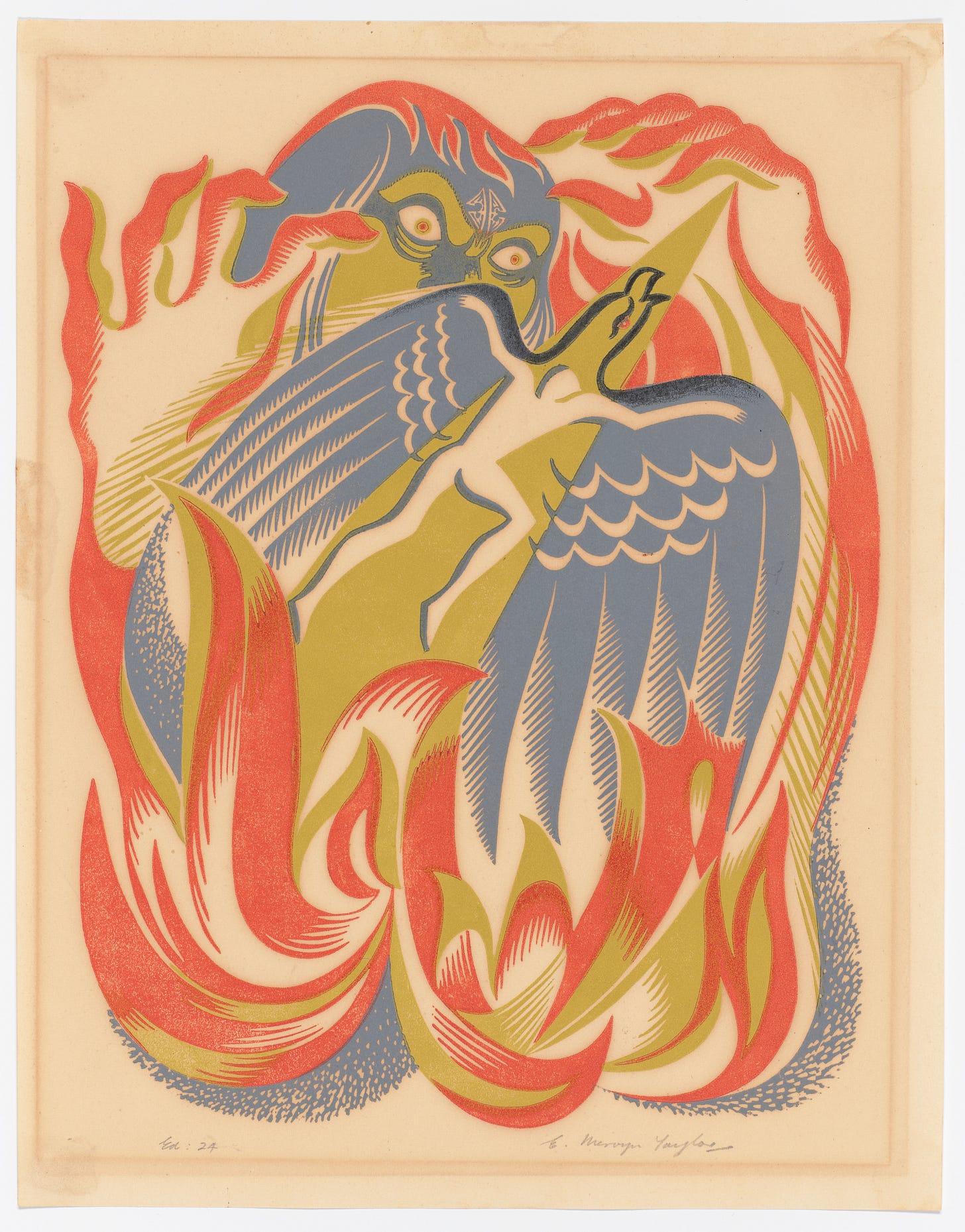Something in me rightfully broke this week. I have noticed since being back Stateside how complacent we have become to tragedy. In a society where just to make basic ends meet all should be being paid a minimum of $25 per hour yet most barely earn but $15 it is understandable the need of many to deny certain emotions and muster up the courage to merely drive on, as Johnny Cash so elegantly refers to in his classic song, aptly named Drive On, which tells a tale of soldiers unable to properly grieve the deaths of friends on the battlefield. We don’t have the privilege within empires kingdom to grieve, to feel, to think. In this post-apocalyptic world of late-stage capitalism in which we wander through the scarred grounds of lost histories, the disembodied beings we have become by necessity have as such forgotten how to grieve, how to properly feel, how to make good compost, how to pray.
When I heard the news of the fires in Maui, a place where in my youth I was initiated into a marriage with Earth that crystalized a view I carry with me to this day, I broke. The pain of the Mother Earth herself should be felt in all of us. Yet as we glorify A.I. and continue to bow to the lords of illusion, the almighty economy and the cult of the individual our ability to truly feel anything at all weakens even further. It’s a miracle I felt what I did. Our senses seem to have atrophied to such a degree that we have become uncomfortably numb, yet few among us seem to know why.
I wrote a piece about *Solastalgia, a term used to describe eco-grief, several months ago to refer to a rising trend in people choosing to not bear children. The experience of despair that results from how we are, in real time, seeing the planet that gives us life, inspires awe, motivates beauty and sustains vision is beyond words. And in a capitalist, technology obsessed world where most have become nearly entirely separated from all things natural, some may observe the fires now raging around the world with little emotion at all. We don’t have time to grieve, time is money after all. Get to work.
Yet somehow the ancient gods made it through the cracks within me this week and when I learned that the planets heart chakra was ablaze, I wept. Emotions thundered through me of which there are no words within the limited confines of the english tongue to properly convey. Solastalgia? Maybe. A longing for a time long ago abandoned swells up from within me and with it… A tidal wave of rage? No, its bigger than rage. Frustration? Its beyond that. Horror? Much greater. Its akin to what the faithful must have felt when they looked up at the Christ they allowed to be crucified. What have we done?!
*Maui and the Fire Goddess. 1952, Wellington, by E Mervyn Taylor.
Oh, we can donate money to Maui (we should, please do, click here for ways in which to do so.). We can make the noble choice to not travel to the islands anymore (not a bad idea either). We can blame fountaingrass (Cenchrus setaceus) and Guinea grass (Megathyrsus maximus) for causing the fires to rage. We can blame colonialism and capitalism for bringing the invasive species’ of christian colonizers and their plants and tourists (not untrue). We can point fingers at local authorities and the federal government (again, certainly not false!). We can criticize the right and the left, the newcomers and all their bullshit obsession with capturing the perfect picture of their family standing in front of the ocean at sunset. We can blame the devil, we can blame The Lord. But now the Sun is truly setting. And who is to blame doesn’t seem to be as important now as how we all, collectively and individually, choose to react to what has resulted from what has been done. We are in it now. This is it.
What do you tell your children when they ask you, “What did you do poppa, to prevent the fires from burning in Lahaina, in Australia, in Canada, in California, in Thailand, in the hearts of man as they attacked the capital, as they gathered in Israel, in Hong Kong, Bangkok, Egypt, Nigeria, Florida, South America, etc, etc. etc.”. What do you tell your daughter when she asks, “What do we do now, mother?”.
As far as I can tell, we have many viable solutions to the messes we have made. The puppet masters of course won’t allow the voices to be heard who know of such magic. Yet even if such songs could be sung, if we cannot regenerate our long lost capacity to feel true emotions again, should we hear those sacred melodies we will likely merely attempt to bottle them up and sell them. Get going again, business as usual, like we do now with organic food and so-called “green-energy”. Maybe instead what we need to do now is slow down and set aside some real time and space for an appropriate mourning for what has been lost. Not some bullshit 30 seconds of silence, but a wild uninhibited whaling, one that can be felt by the underworld, one that can genuinely honor that which we miss. Maybe what needs to occur now, is nothing. Maybe the planet is asking us to shut the fuck up and to simply…. stop.
I Wish It Could Have Been Another Way (A Lament w/ Peia Luzzi)
Please consider attending Kelly Moody’s class on Grief and Plants online on September 5 which will explore the relationship between plants and the maps of our personal, community, cultural, societal and global grief. Kelly will help facilitate a dive into a handful of plants/mushrooms associated with grief and how they are used while also exploring how plants and ecological webs on the whole can knit our grieving hearts into more resilient vessels for empathy and feeling.
*Solastalgia - Solastalgia (/ˌsɒləˈstældʒə/) is a neologism, formed by the combination of the Latin words sōlācium (comfort) and the Greek root -algia (pain, suffering, grief), that describes a form of emotional or existential distress caused by environmental change. It is best described as the lived experience of negatively perceived environmental change. A distinction can be made between solastalgia linked to distress about what is in the process of negatively perceived change and eco-anxiety linked to what may happen in the future (associated with "pre-traumatic stress", in reference to post-traumatic stress).
The word was coined by philosopher Glenn Albrecht in his 2003 book Solastalgia: a new concept in human health and identity. He describes it as "the homesickness you have when you are still at home" and your home environment is changing in ways you find distressing. In many cases this is in reference to global climate change, but more localized events such as volcanic eruptions, drought or destructive mining techniques can cause solastalgia as well. Differing from nostalgic distress on being absent from home, solastalgia refers to the distress specifically caused by environmental change while still in a home environment. In 2015, an article in the medical journal The Lancet included solastalgia as a contributing concept to the impact of climate change on human health and well-being. More recent approaches have connected solastalgia to the experience of historic heritage threatened by the climate crisis, such as the ancient cities of Venice, Amsterdam, and Hoi An.
(from Wikipedia)





Beautiful words, so well written, thank you for articulating this abundance of truths for us 🙏🏽❤🌊